welcome to the 21th dokumentarfilmwoche hamburg
program
Exchange is and has always been the heart of our festival. This year more than ever we want to bring contradictory perspectives into dialogue again and advocate for debate. At the time of writing at the beginning of March, a cultural-political debate triggered by the Middle East conflict was raging in Germany. In light of the largely polarizing debate, we also discussed intensely what role we wanted to play in it. This is an attempt to take a stand and reaffirm the values we stand for, without engaging in the current polarization and two-sided politics: we take a clear stance against racism, anti-Semitism and Islamophobia, as well as any other form of discrimination. For an open society, for the courage to confront – even with painful realities and insights – and to continue the dialogue with everyone who has an interest in understanding and can consider that their own opinions can be changed through new insights and other perspectives. This applies not least to ourselves, as a white, privileged team with a tendency to believe in universalistic values against all odds. We would like to invite you to partake in dialogue and debate. With us, our guests and the films presented: in the morning during the discussion events in the festival center, in the evening in the festival club and especially before, after and in the cinema.
Ready to talk and undaunted, the documentary film week hamburg team
Here you can download the PDF of the catalog and the program schedule of our festival.
Opening | Metropolis
Tue 23.4. | 8 pm
Guest: Karin Berger
Afterwards: curb bar
Position: Karin Berger
Wankostättn
Karin Berger, AT 2023, 37 min, germ. OV with engl. Subtitles
Karl Stojka survived. In 1997 he stands on the street in Vienna’s tenth district, between residential buildings and parked cars, with a tie, hat and cane.
mehr
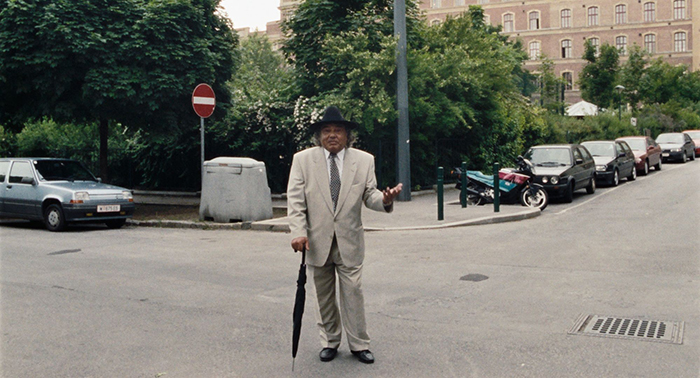 He walks, tells, shows, remembers and recognises »Wankostättn«: Back in his childhood and youth, a camp on a meadow with wagons, inhabited by Roma and Sinti – this place is now gone. Its former residents like Karl Stojka were deported by the National Socialists in 1943. It‘s not just old black and white photographs that bear witness to this – Karin Berger‘s film documents Stojka‘s memories without losing any of their poignancy. ›Wankostättn‹‘s contemporary witness account shot on 16mm has, to this day, lost none of its power and is an example of what film can achieve. (af)
He walks, tells, shows, remembers and recognises »Wankostättn«: Back in his childhood and youth, a camp on a meadow with wagons, inhabited by Roma and Sinti – this place is now gone. Its former residents like Karl Stojka were deported by the National Socialists in 1943. It‘s not just old black and white photographs that bear witness to this – Karin Berger‘s film documents Stojka‘s memories without losing any of their poignancy. ›Wankostättn‹‘s contemporary witness account shot on 16mm has, to this day, lost none of its power and is an example of what film can achieve. (af)
Position | Festivalzentrum fux eG
Wed 24.4. | 11 am
Guest:
Ingo Kottkamp
Lecture in German
Position: Documentary listening
Wirklichkeit im Radio
About audio documentaries from the archives that have stood the test of time
Lecture and showcase
Radio feature and documentary films: the latter makes you think of big festivals, the former sounds serious but perhaps a little brash. Is there an acoustic sister of documentary film?
mehr
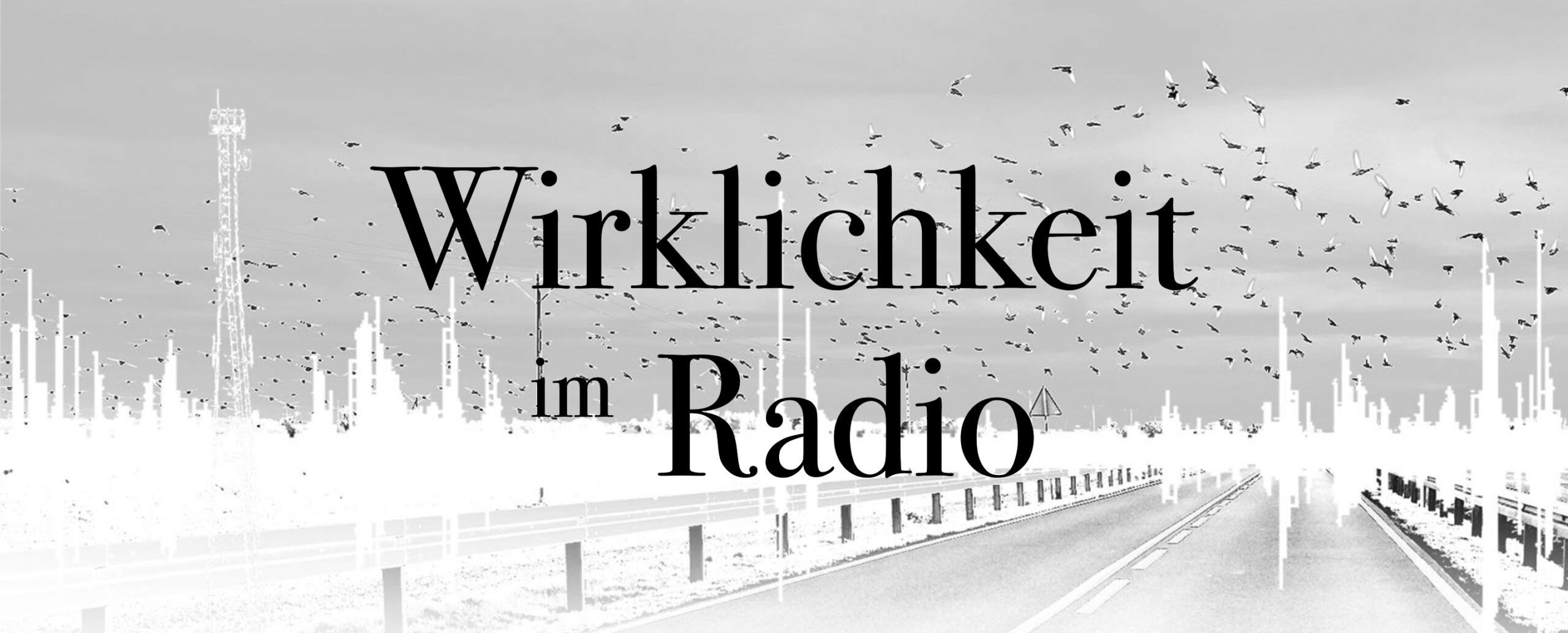 And is it hiding in the archives of public broadcasting? For the website ›Reality in Radio‹ a team spent years browsing, listening and discussing. Some of these discussions will be recounted today. And above all, there is a lot of reality on the radio to hear. The archive project ›Reality in Radio‹ was created as a series by the feature editorial team at Deutschlandfunk Kultur and explores the history of documentary storytelling on the radio. It was always important not to listen to museum pieces, but to listen to pieces that are still relevant today. (Ingo Kottkamp)
And is it hiding in the archives of public broadcasting? For the website ›Reality in Radio‹ a team spent years browsing, listening and discussing. Some of these discussions will be recounted today. And above all, there is a lot of reality on the radio to hear. The archive project ›Reality in Radio‹ was created as a series by the feature editorial team at Deutschlandfunk Kultur and explores the history of documentary storytelling on the radio. It was always important not to listen to museum pieces, but to listen to pieces that are still relevant today. (Ingo Kottkamp)
> Exhibition: Documentary listening
> Wildenhahn audio play: Da wo die Kamine qualmen, da musst Du später hin
Exhibition | Festival center fux eG
Open:
Wed 24.4. – Sat 27.4.
10 am to 6.30 pm
Sun 28.4.
12 noon to 6.30 pm
Position: Documentary listening
Documentary listening
Programm und Ausstellung
Geräusche, Songs, O-Töne, Dialoge, Erzählungen. Wie vermittelt sich ein Behördenapparat, ein Aufnahmestudio oder ein Gemälde, wenn man es nicht sieht, sondern ausschließlich hört? Welche Mittel nutzt das dokumentarische Erzählen, das sich allein über Ton vermittelt? Und warum beschäftigt sich die dokumentarfilmwoche hamburg damit?
mehr
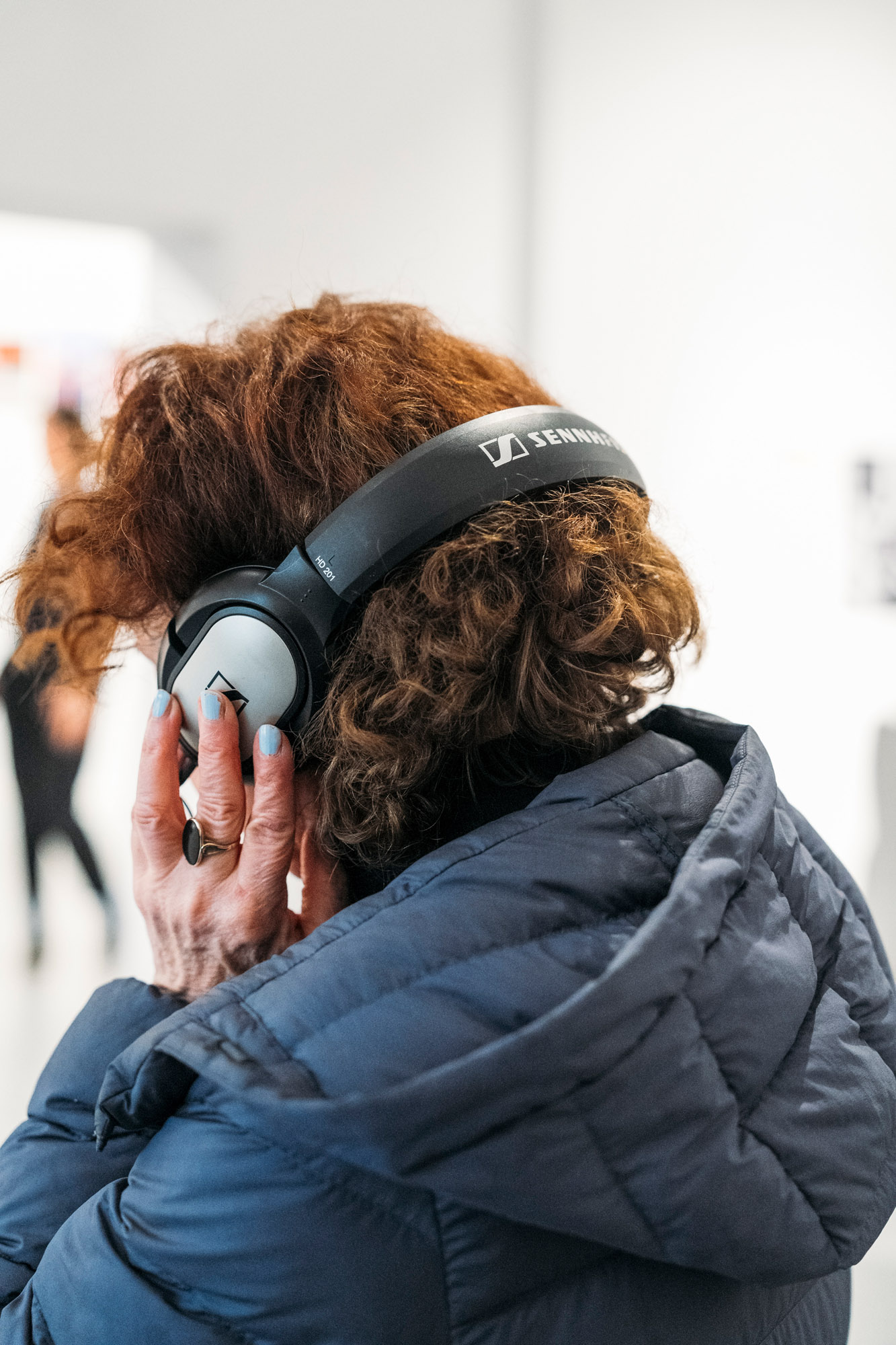 Wir wollen uns mit dem dokumentarischen Hörstück befassen, das so vieles mit dem Dokumentarfilm gemeinsam hat und doch als rein akustisches Medium mit anderen Prämissen arbeitet. Eröffnet wird die Positionsveranstaltung am Mitwoch mit einem Vortrag von Ingo Kottkamp zu ›Wirklichkeit im Radio‹, der Sendereihe und Materialsammlung von Deutschlandfunk Kultur. Kottkamp erkundet die Geschichte des dokumentarischen Erzählens im Radio und beleuchtet seine Möglichkeiten und Grenzen anhand von Archivfunden aus verschiedenen Sendeanstalten. Am Nachmittag bringen wir das dokumentarische Hören dann vom Radio in den Kinoraum. Wie verändert sich ein Hörstück, wenn es nicht über Kopfhörer oder Radiolautsprecher gehört wird, sondern innerhalb einer konzentrierten Atmosphäre wie der eines Kinosaals? Dieser Frage gehen wir mit dem Radiofeature ›Fifty Shades of Meryem‹ im B-Movie nach. Im Festivalzentrum in der fux eG geht eine Ausstellung der Bandbreite des dokumentarischen Hörens vor allem historisch auf den Grund. Wir haben einen Ort geschaffen, an dem man sich gemeinsam oder allein, entspannt oder konzentriert, reinlauschend oder durchrauschend dem dokumentarischen Hören widmen kann. Dort zeigen wir ab Mittwoch an drei Tagen eine kuratierte Auswahl aus der Reihe ›Wirklichkeit im Radio‹, ergänzt durch englischsprachige Hörstücke sowie Klaus Wildenhahns Hörstück ›Da wo die Kamine qualmen, da musst Du später hin‹, der zusätzlich einmalig in den fux Lichtspielen präsentiert wird. Begleitend zu diesem historischen Hörstück findet am Samstag eine Lesung mit Freunden Wildenhahns statt. Am Samstag und Sonntag rundet ein Best-of der vorangegangenen Tage das Programm ab. Tune in! (sp)
Wir wollen uns mit dem dokumentarischen Hörstück befassen, das so vieles mit dem Dokumentarfilm gemeinsam hat und doch als rein akustisches Medium mit anderen Prämissen arbeitet. Eröffnet wird die Positionsveranstaltung am Mitwoch mit einem Vortrag von Ingo Kottkamp zu ›Wirklichkeit im Radio‹, der Sendereihe und Materialsammlung von Deutschlandfunk Kultur. Kottkamp erkundet die Geschichte des dokumentarischen Erzählens im Radio und beleuchtet seine Möglichkeiten und Grenzen anhand von Archivfunden aus verschiedenen Sendeanstalten. Am Nachmittag bringen wir das dokumentarische Hören dann vom Radio in den Kinoraum. Wie verändert sich ein Hörstück, wenn es nicht über Kopfhörer oder Radiolautsprecher gehört wird, sondern innerhalb einer konzentrierten Atmosphäre wie der eines Kinosaals? Dieser Frage gehen wir mit dem Radiofeature ›Fifty Shades of Meryem‹ im B-Movie nach. Im Festivalzentrum in der fux eG geht eine Ausstellung der Bandbreite des dokumentarischen Hörens vor allem historisch auf den Grund. Wir haben einen Ort geschaffen, an dem man sich gemeinsam oder allein, entspannt oder konzentriert, reinlauschend oder durchrauschend dem dokumentarischen Hören widmen kann. Dort zeigen wir ab Mittwoch an drei Tagen eine kuratierte Auswahl aus der Reihe ›Wirklichkeit im Radio‹, ergänzt durch englischsprachige Hörstücke sowie Klaus Wildenhahns Hörstück ›Da wo die Kamine qualmen, da musst Du später hin‹, der zusätzlich einmalig in den fux Lichtspielen präsentiert wird. Begleitend zu diesem historischen Hörstück findet am Samstag eine Lesung mit Freunden Wildenhahns statt. Am Samstag und Sonntag rundet ein Best-of der vorangegangenen Tage das Programm ab. Tune in! (sp)
> Lecture: Wirklichkeit im Radio
>Wildenhahn audio play: Da wo die Kamine qualmen, da musst Du später hin
Feature (Hörstück) | B-Movie
Wed 24.4. | 2 pm
Guests:
Leon Daniel,
Yannick Kaftan,
Katrin Moll
(DLF Kultur)
Q&A: German

Position: Documentary listening
Fifty Shades of Meryem
Feature (audio play)
Leon Daniel, Yannick Kaftan, DE 2024, 54 min, germ. OV
»And who are you?« »Fifty Shades of Meryem. Leon Daniel and Yannick Kaftan accompany actress Meryem Öz through her life.
mehr
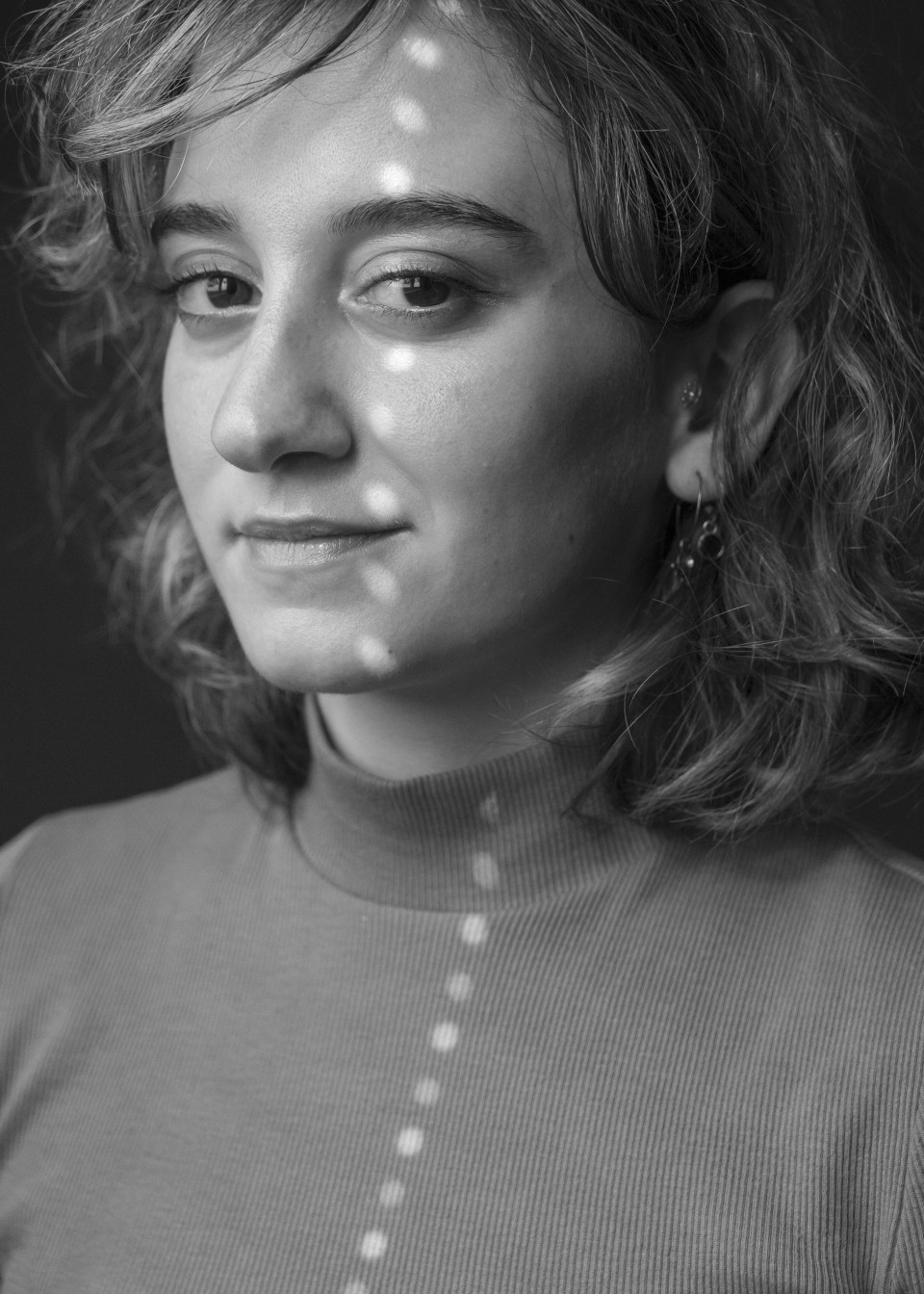 Together, the three of them oscillate spatially, sonically and mentally between Hamburg and Samsun. Not so long ago, Mery joined the ensemble at Hamburg‘s Thalia Theatre; in the summer, they visit Mery‘s family in Turkey. Mery reflects on her life as an actress, navigating identity, the importance of family, what it means to be a Muslim woman, how she had to assimilate in order to gain a foothold in the theatre industry and how she wants to get involved politically to change things. The relationship between her and the two feature makers is always part of the discussion. A radio play that leaves many images in the mind. (sp)
Together, the three of them oscillate spatially, sonically and mentally between Hamburg and Samsun. Not so long ago, Mery joined the ensemble at Hamburg‘s Thalia Theatre; in the summer, they visit Mery‘s family in Turkey. Mery reflects on her life as an actress, navigating identity, the importance of family, what it means to be a Muslim woman, how she had to assimilate in order to gain a foothold in the theatre industry and how she wants to get involved politically to change things. The relationship between her and the two feature makers is always part of the discussion. A radio play that leaves many images in the mind. (sp)
> Lecture: Wirklichkeit im Radio
>Exhibition: Documentary listening
> Wildenhahn audio play: Da wo die Kamine qualmen, da musst Du später hin
Position | B-Movie
Wed 24.4. | 3.45 pm
Guest: Olena Newkryta
Q&A: German
Double Feature
with Wie man sieht
Position: Newkryta/Farocki
Patterns Against Workers
Olena Newkryta, AT 2023, 34 min, engl. OV with germ. Subtitles
From the loom to digital code. From the architectural organization of factories to the computer chip.
mehr
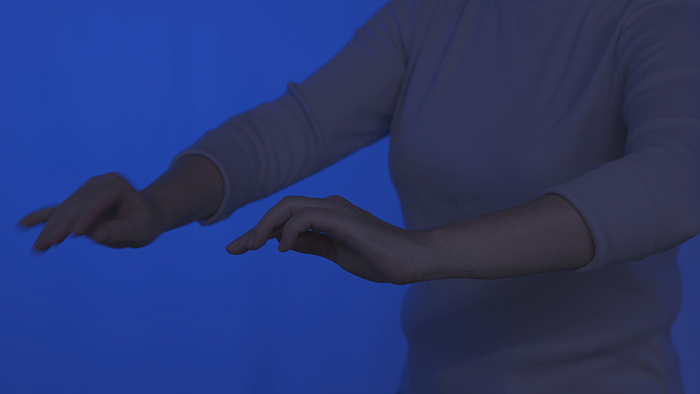 ›Patterns Against Workers‹ shows how the collective knowledge of the weavers of past centuries is siphoned off and fed into the virtual machine rooms of our present and »how the management of time, space and work materializes in the commodity itself«. An essay film that condenses its material to the maximum instead of meandering essayistically and whose mode of excessive demands is substantiated in the exploitation and exhaustion of the workers to the point of sleeplessness. An audiovisual arrangement whose adequately used cinematic means always operate close to the subject matter and develop great immersive effect. (bs)
›Patterns Against Workers‹ shows how the collective knowledge of the weavers of past centuries is siphoned off and fed into the virtual machine rooms of our present and »how the management of time, space and work materializes in the commodity itself«. An essay film that condenses its material to the maximum instead of meandering essayistically and whose mode of excessive demands is substantiated in the exploitation and exhaustion of the workers to the point of sleeplessness. An audiovisual arrangement whose adequately used cinematic means always operate close to the subject matter and develop great immersive effect. (bs)
Position | B-Movie
Wed 24.4. | 3.45 pm
Introduction:
Michael Baute
Double Feature
with Patterns Against Workers
Position: Newkryta/Farocki
Wie man sieht
Harun Farocki, BRD 1986, 72 min, germ. OV with engl. Subtitles
My film ›Wie man sieht‹ is a feature film, it has a lot of action.
mehr
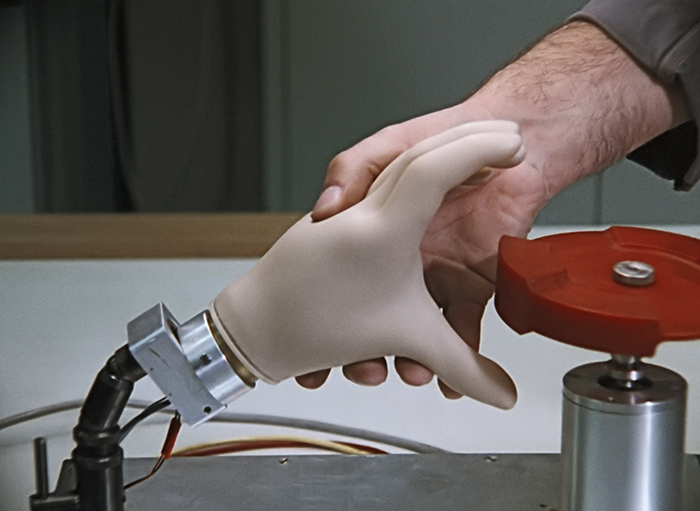
It tells of girls in porn magazines who are given names, and of the nameless dead in mass graves, of machines that are so ugly that a disguise has to protect the worker‘s eye, and of engines that are too beautiful for the hood to hide them, of working techniques that cling to the cooperation of hand and brain or want to put an end to it. My film ›Wie man sieht‹ is an essay film. The current opinion apparatus is a big mouth and perhaps a shredder. I create a new text out of the scraps and thus organize a paper chase. My film is made up of many details and establishes many image-image and word-image and word-word relationships among them and can therefore fill an entire evening. I looked for and found a form in which you can do a lot with little money. (Harun Farocki)
Position | B-Movie
Wed 24.4. | 6.30 pm
Guest: Karin Berger
Q&A: German
Position: Karin Berger
Küchengespräche mit Rebellinnen
Karin Berger, Elisabeth Holzinger, Lotte Podgornik, Lisbeth N. Trallori, AT 1984, 80 min, germ. OV with germ. Subtitles
In ›Küchengespräche mit Rebellinnen‹, four women talk about their resistance to National Socialism, recalling their experiences with calm and determination, sometimes with mischievous wit..
mehr
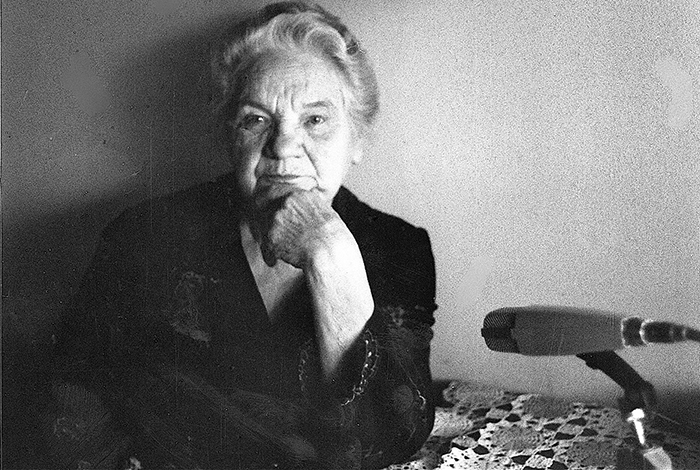 Karin Berger follows their memories. The film‘s minimalism is not merely the result of trust in the power of storytelling, but even more so of the necessity of remembering, of bearing witness. During the conversation in the kitchen, 40 years later, the experience has lost none of its terrible intensity. An important gesture of this film is perhaps the making palpable of the inexplicable, which can no longer be understood and which must nevertheless be told. The courage that these women were able to muster and millions of others could not, can only remain incomprehensible. The resilience that turned them into rebels. (ab)
Karin Berger follows their memories. The film‘s minimalism is not merely the result of trust in the power of storytelling, but even more so of the necessity of remembering, of bearing witness. During the conversation in the kitchen, 40 years later, the experience has lost none of its terrible intensity. An important gesture of this film is perhaps the making palpable of the inexplicable, which can no longer be understood and which must nevertheless be told. The courage that these women were able to muster and millions of others could not, can only remain incomprehensible. The resilience that turned them into rebels. (ab)
B-Movie
Wed 24.4. | 8.30 pm
Guest: Franzis Kabisch
Q&A: German
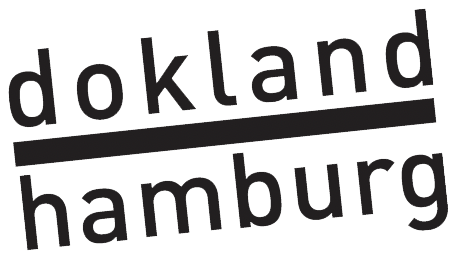
getty abortions
Franzis Kabisch, AT/DE 2023, 22 min, german OV with engl. Subtitles
What kind of images shape our society and how do they influence our perception?
mehr
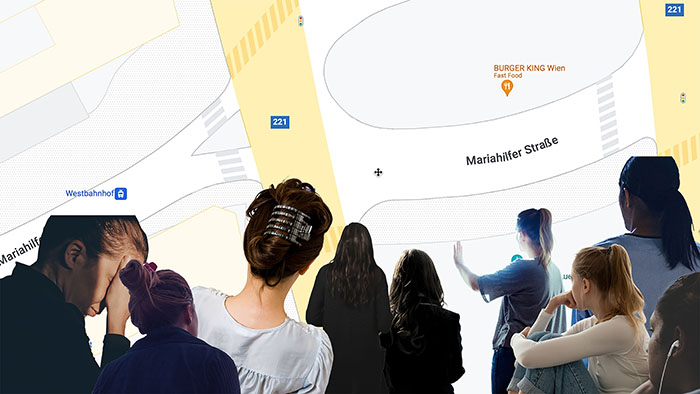 In this precisely constructed desktop film, Franzis Kabisch explores the one-dimensional portrayal of abortion in the media. In a playful, essayistic form, ›getty abortions‹ takes us from 90s BRAVO magazines through an archive of stock photos and scientific papers to personal and imaginary stories. The symbolic images themselves are scrutinized, as are their possible interpretations. Accompanied by a galloping sound design, Kabisch examines prevailing image constructs: she dissects, dismantles and reassembles them like a collage. An attempt to counter the dominant media representation. (fb)
In this precisely constructed desktop film, Franzis Kabisch explores the one-dimensional portrayal of abortion in the media. In a playful, essayistic form, ›getty abortions‹ takes us from 90s BRAVO magazines through an archive of stock photos and scientific papers to personal and imaginary stories. The symbolic images themselves are scrutinized, as are their possible interpretations. Accompanied by a galloping sound design, Kabisch examines prevailing image constructs: she dissects, dismantles and reassembles them like a collage. An attempt to counter the dominant media representation. (fb)
B-Movie
Wed 24.4. | 9.30 pm
Guest: Romeo Grünfelder
Q&A: German

Tot oder lebendig
Romeo Grünfelder, DE 2024, 60 min, engl./ger. OV with engl. Subtitles
A Slovakian mathematician, a medium, is dependent on the quality of a photograph in order to be able to connect with it, to feel it.
mehr
 If this succeeds, the medium claims to be able to determine the vital state of the person depicted in the photograph: dead or alive. Whether this is a credible psychic ability or merely fraud and deception is what four skeptics from San Francisco and a test director want to discover in an experiment with a claim to objectivity. The film observes this seemingly bizarre experimental set-up with patience and adds contextualising information. The result is plenty of room for reflection and a film that only briefly leaves the spheres of the sensual. (mr)
If this succeeds, the medium claims to be able to determine the vital state of the person depicted in the photograph: dead or alive. Whether this is a credible psychic ability or merely fraud and deception is what four skeptics from San Francisco and a test director want to discover in an experiment with a claim to objectivity. The film observes this seemingly bizarre experimental set-up with patience and adds contextualising information. The result is plenty of room for reflection and a film that only briefly leaves the spheres of the sensual. (mr)
Position | Festivalzentrum fux eG
Thur 25.4. | 11 am
Guests: Michael Baute,
Olena Newkryta
Discussion in German
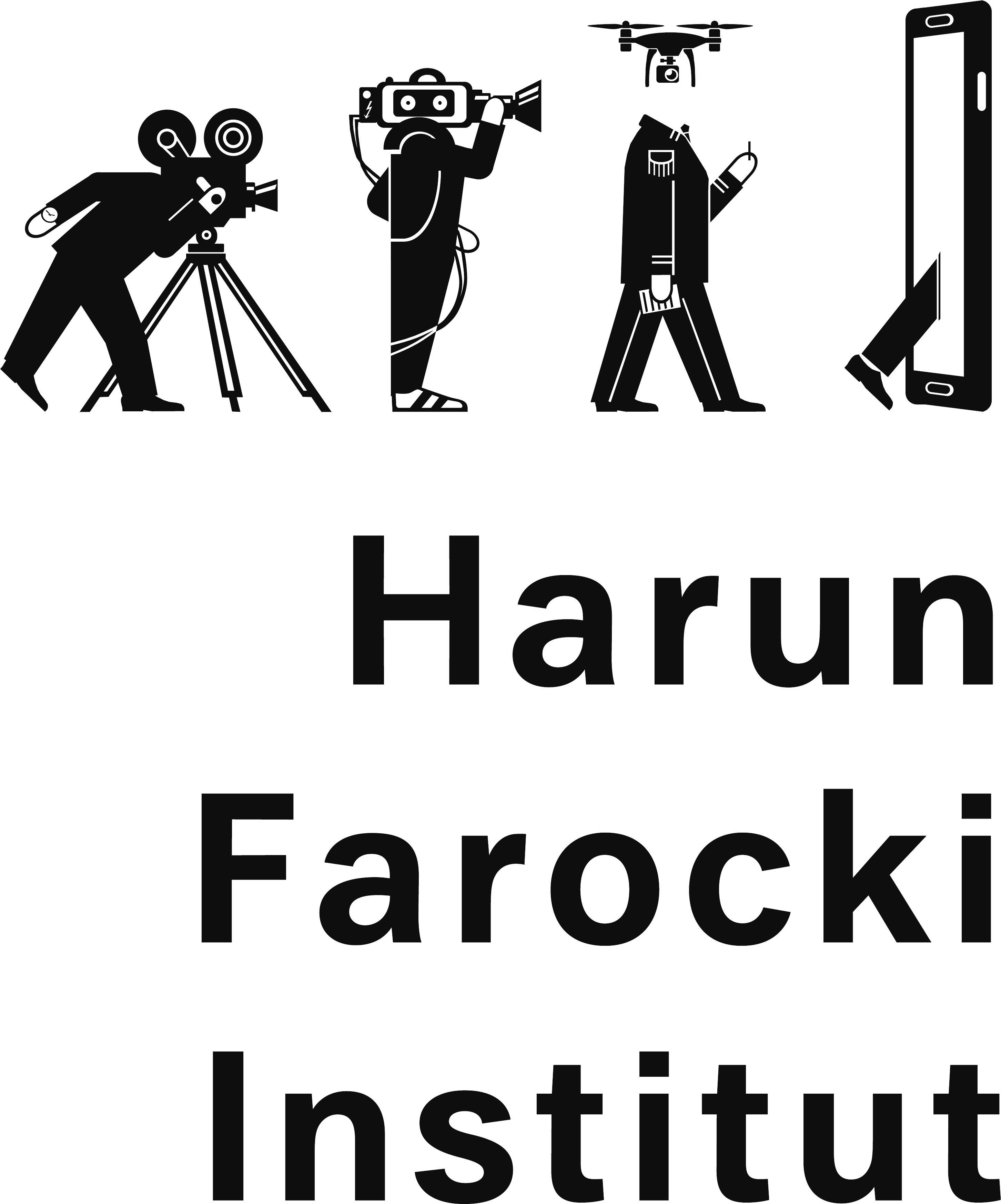
Position: Newkryta/Farocki
Work under observation
Discussion in cooperation with the Harun Farocki Institute
Patterns Against Workers‹ by Olena Newkryta was released in 2023. 37 years earlier, in 1986, Harun Farocki‘s ›Wie man sieht‹ was released.
mehr
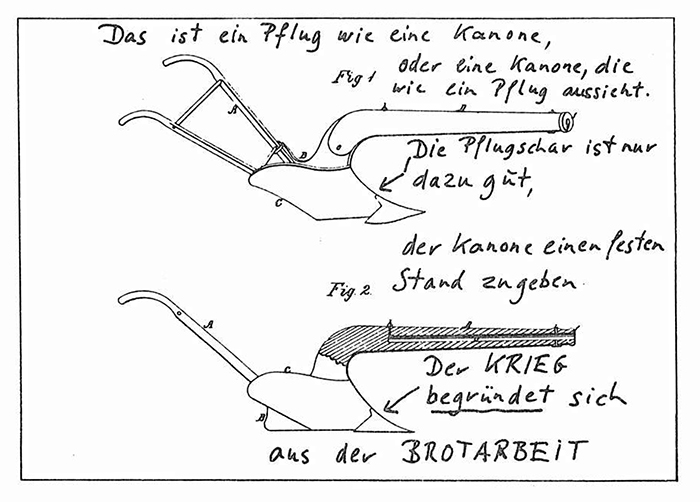 Both films deal with labour relations and their visibility, with seeing and historical concepts. Both contain heterogeneous text and image material, which they organise in the mode of the »essay film«, and ultimately find their own conceptions of »action«. The discussion will focus on the encounter between these two films; on the thesis that ›Patterns Against Workers‹ is a continuation of ›Wie man sieht‹; on the difference between images shot and edited on 16mm back then and digital techniques today; on the concept of the „essay film“ and its operations of construction. (Michael Baute)
Both films deal with labour relations and their visibility, with seeing and historical concepts. Both contain heterogeneous text and image material, which they organise in the mode of the »essay film«, and ultimately find their own conceptions of »action«. The discussion will focus on the encounter between these two films; on the thesis that ›Patterns Against Workers‹ is a continuation of ›Wie man sieht‹; on the difference between images shot and edited on 16mm back then and digital techniques today; on the concept of the „essay film“ and its operations of construction. (Michael Baute)
Lichtmeß
Thur 25.4. | 2 pm
Guest: Can Ünlü
Q&A: German

Daidai
Can Ünlü, DE 2023, 56 min, turk. OV with engl. Subtitles
›Daidai‹ shows an elderly man during one or many nights. He sits there between the glimmer of a reading lamp and the near-darkness.
mehr
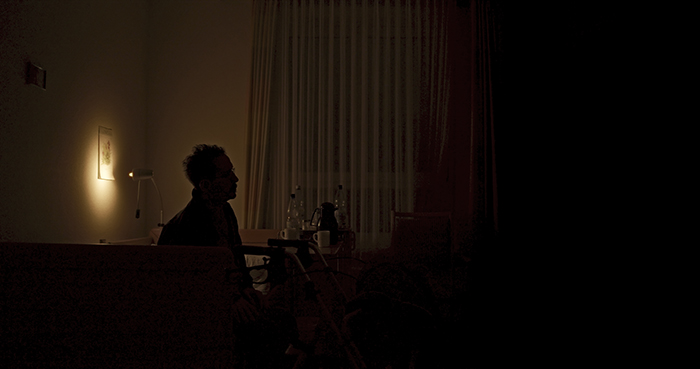 Only the teletext is clearly illuminated: soccer results of the Turkish Süper-Lig, January 20, 21.22. The clock ticks as if time has jumped, nothing indicates that it is passing. Not until he slowly wanders through the hallway of the nursing home. And later through the city. Who is this man? ›Daidai‹ doesn‘t reveal much, the film almost seems to hold the protagonist captive in the stylisation of his isolation. The longer the darkness in the room unfolds, the more it is penetrated by the teletext that this film turns into an event; by a young man who sits down with him and a past life. Can Ünlü‘s observation of this stubborn persistence results in a courageous portrait. (ab)
Only the teletext is clearly illuminated: soccer results of the Turkish Süper-Lig, January 20, 21.22. The clock ticks as if time has jumped, nothing indicates that it is passing. Not until he slowly wanders through the hallway of the nursing home. And later through the city. Who is this man? ›Daidai‹ doesn‘t reveal much, the film almost seems to hold the protagonist captive in the stylisation of his isolation. The longer the darkness in the room unfolds, the more it is penetrated by the teletext that this film turns into an event; by a young man who sits down with him and a past life. Can Ünlü‘s observation of this stubborn persistence results in a courageous portrait. (ab)
Der Wind nimmt die mit
Ann Carolin Renninger, DE 2023, 25 min, ger. OV with engl. Subtitles
»Human history does not go on forever.« Rovin, describes how the passing of time is already inscribed in its emergence, giving us a short, unsparing history of civilization.
mehr
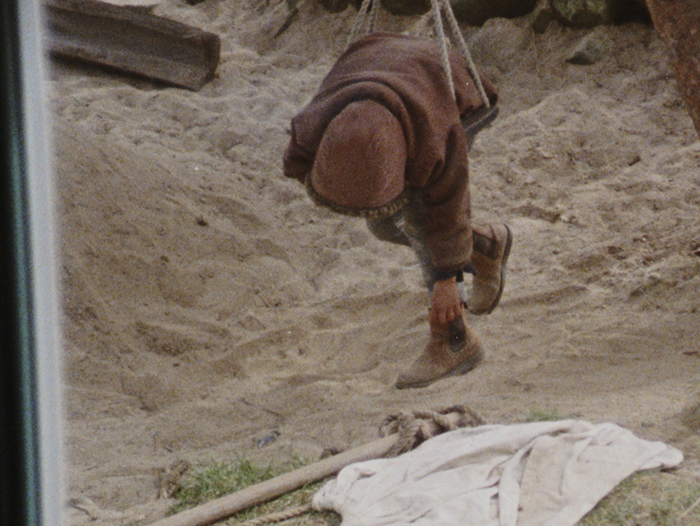 His young mind looks at the world with curiosity, its inhabitants and the distant universe. The director‘s gaze with her analog camera also testifies to an incessant curiosity about movements, things and people. In the tactile perception of the seemingly archaic living world, as Maria does with the stones outside her front door, the exploratory intertwines with the personal. By trusting the possibilities of documentary work, ›Der Wind nimmt die mit‹ playfully poses questions about the processual relationship between man, nature and technology, in short: being. (mr)
His young mind looks at the world with curiosity, its inhabitants and the distant universe. The director‘s gaze with her analog camera also testifies to an incessant curiosity about movements, things and people. In the tactile perception of the seemingly archaic living world, as Maria does with the stones outside her front door, the exploratory intertwines with the personal. By trusting the possibilities of documentary work, ›Der Wind nimmt die mit‹ playfully poses questions about the processual relationship between man, nature and technology, in short: being. (mr)
Position | Lichtmeß
Thur 25.4. | 5 pm
Guest: Karin Berger
Q&A: German
Position: Karin Berger
Ceija Stojka
Karin Berger, AT 1999, 85 min, ger. OV with engl. Subtitles
Ceija Stojka is a painter, author and contemporary witness. Born in 1933 and raised as a traveling Romni, she survived three concentration camps as a child.
mehr
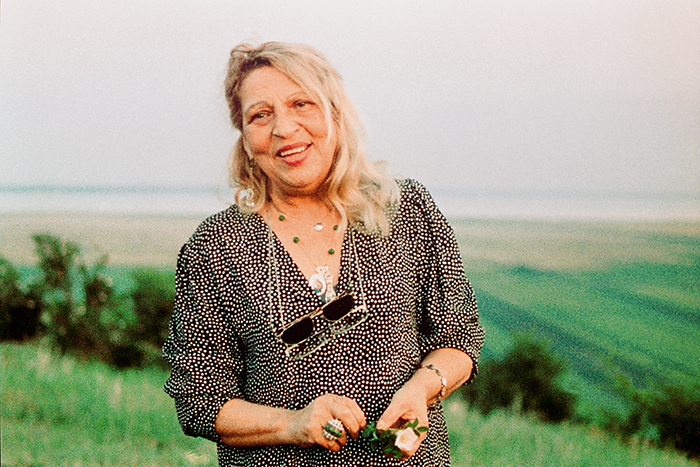 A brick from Auschwitz-Birkenau rests in her kitchen cupboard, carefully wrapped in a cloth. Ceija remembers in defiance of forgetting, talks about traumatic experiences but also of life afterwards and her family. Karin Berger‘s sensitive portrait keeps close to its remarkable protagonist and her everyday life is given space as well as the past, the unimaginable. When Ceija talks about the »brown sauce« that flowed like a river through all of Europe while adding that »it‘s still flowing today«, her position as a witness is frighteningly topical and the film becomes an urgent appeal. (ek)
A brick from Auschwitz-Birkenau rests in her kitchen cupboard, carefully wrapped in a cloth. Ceija remembers in defiance of forgetting, talks about traumatic experiences but also of life afterwards and her family. Karin Berger‘s sensitive portrait keeps close to its remarkable protagonist and her everyday life is given space as well as the past, the unimaginable. When Ceija talks about the »brown sauce« that flowed like a river through all of Europe while adding that »it‘s still flowing today«, her position as a witness is frighteningly topical and the film becomes an urgent appeal. (ek)
El Shatt – A Blueprint for Utopia
Ivan Ramljak, HR/RS 2023, 96 min, croat./serb. OV with engl. Subtiles
A ship sails from Europe to North Africa, bringing people to a camp in the desert.
mehr
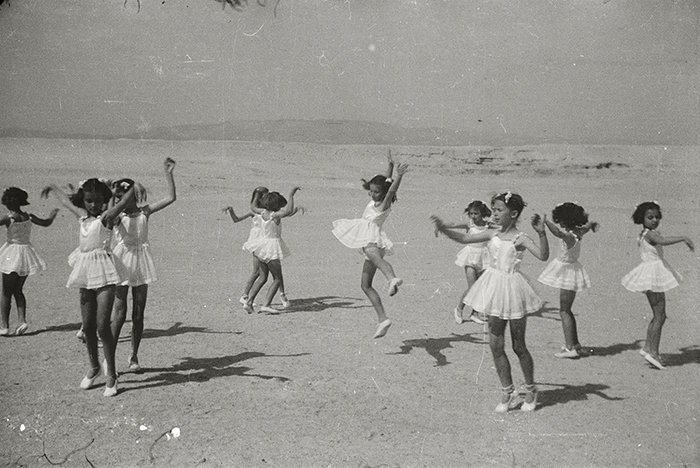 It is 1944, they are fleeing from the German Wehrmacht, which is threatening to occupy southern Yugoslavia after Italy‘s capitulation. On board the ships are children and old people, but above all partisans fleeing from the fascists to the Dalmatian islands. When they could no longer cope with the crowds, the Allies organized their evacuation to Egypt. The idea was that the »El Shatt« camps should also serve as a model for the construction of a new society after the war. Ivan Ramljak compiles his film from archive material, testimonials from contemporary witnesses and agit-prop scenes that quote original historical texts. (mg)
It is 1944, they are fleeing from the German Wehrmacht, which is threatening to occupy southern Yugoslavia after Italy‘s capitulation. On board the ships are children and old people, but above all partisans fleeing from the fascists to the Dalmatian islands. When they could no longer cope with the crowds, the Allies organized their evacuation to Egypt. The idea was that the »El Shatt« camps should also serve as a model for the construction of a new society after the war. Ivan Ramljak compiles his film from archive material, testimonials from contemporary witnesses and agit-prop scenes that quote original historical texts. (mg)
Notes from Eremocene
Viera Čákanyová, SK/CZ 2023, 78 min, engl./slovak. OV with engl. Subtitles
In the Eremocene, humanity finds itself in existential isolation.
mehr
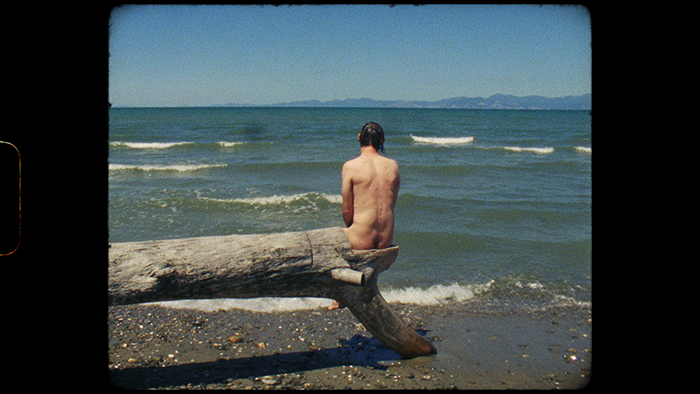 Characterised by environmental destruction, the global decline in biodiversity and the dominance of the technosphere over the biosphere, this age embodies the essence of loneliness. This is where a bizarre, dystopian narrative begins: In her analogue science fiction essay, Viera Čákanyová embarks on a dialogue between humanity and a future virtual alter ego. In a playful mix of analogue film and digital images, Čákanyová intimately questions our optimistic approach to technology and reflects on its role in the midst of global crises. This deeply personal endeavour becomes an audiovisual postcard to an uncertain future. (sh)
Characterised by environmental destruction, the global decline in biodiversity and the dominance of the technosphere over the biosphere, this age embodies the essence of loneliness. This is where a bizarre, dystopian narrative begins: In her analogue science fiction essay, Viera Čákanyová embarks on a dialogue between humanity and a future virtual alter ego. In a playful mix of analogue film and digital images, Čákanyová intimately questions our optimistic approach to technology and reflects on its role in the midst of global crises. This deeply personal endeavour becomes an audiovisual postcard to an uncertain future. (sh)
Festivalzentrum fux eG
Fri 26.4. | 11 am
Guest: Karin Berger, Kelly Laubinger
Discussion in German
Position: Karin Berger
Narrating as an act of remembrance
Workshop discussion with Karin Berger and Kelly Laubinger (Chairwoman of the Federal Association of Sinti and Roma)
mehr
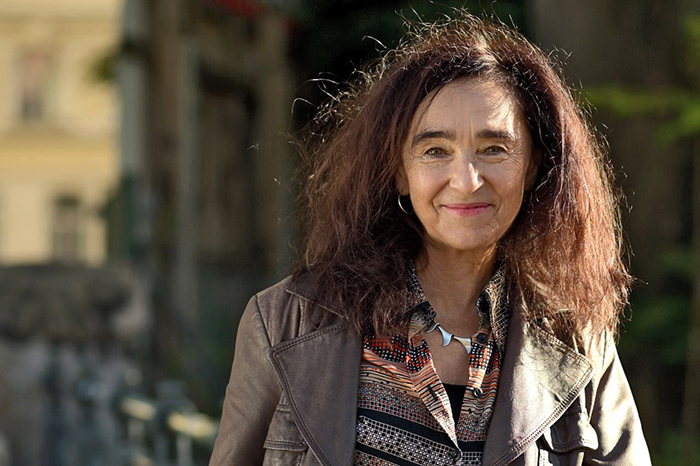 A conversation with Karin Berger should not really take place on a stage, an artificial place of attention. Rather on a walk or while drinking a coffee on the side of the road. Karin Berger also encounters her protagonists in these situations and spaces of everyday life. In the kitchen, in the living room, at a crossroads, driving a car, painting. Since the 1980s, the filmmaker has been researching and filming primarily about female contemporary witnesses. In particular, the realities of women‘s lives under National Socialism and the representation of Rom*nja and Sinti*zze are the subject of her work. Perspectives that were and are pushed to the margins of cultural memory. Trusting in the testimonial and pictorial power of narrating, she gives space to the life stories of her protagonists without losing herself in formal embellishment. Karin Berger herself is perceptible in her films in a very pleasant, restrained way. The great accomplishment of her questions is that she perseveres precisely in those moments when the experience, the fear of death, the courage, the resilience seem all too self-evident. She also focuses her attention on the small things that only timidly assert their significance: a mirror and a pocket watch, a brick under the sink. When Ceija Stojka paints in her living room and Karl Stojka points to a letterbox in a Viennese neighbourhood, the difference between the past and the present, the mundane and the unimaginable, reveals the resistance of living on, of still narrating, against forgetting. With Karin Berger‘s characteristic empathetic curiosity, we look forward to following the path through her film oeuvre together with her and the audience in a workshop discussion. (ab/ek)
A conversation with Karin Berger should not really take place on a stage, an artificial place of attention. Rather on a walk or while drinking a coffee on the side of the road. Karin Berger also encounters her protagonists in these situations and spaces of everyday life. In the kitchen, in the living room, at a crossroads, driving a car, painting. Since the 1980s, the filmmaker has been researching and filming primarily about female contemporary witnesses. In particular, the realities of women‘s lives under National Socialism and the representation of Rom*nja and Sinti*zze are the subject of her work. Perspectives that were and are pushed to the margins of cultural memory. Trusting in the testimonial and pictorial power of narrating, she gives space to the life stories of her protagonists without losing herself in formal embellishment. Karin Berger herself is perceptible in her films in a very pleasant, restrained way. The great accomplishment of her questions is that she perseveres precisely in those moments when the experience, the fear of death, the courage, the resilience seem all too self-evident. She also focuses her attention on the small things that only timidly assert their significance: a mirror and a pocket watch, a brick under the sink. When Ceija Stojka paints in her living room and Karl Stojka points to a letterbox in a Viennese neighbourhood, the difference between the past and the present, the mundane and the unimaginable, reveals the resistance of living on, of still narrating, against forgetting. With Karin Berger‘s characteristic empathetic curiosity, we look forward to following the path through her film oeuvre together with her and the audience in a workshop discussion. (ab/ek)
3001
Fri 26.4. | 2 pm
Guest: Nizan Kasper
Q&A: German

HAUBI
Nizan Kasper, DE 2023, 47 min, germ. OV with engl. Subtitles
»Is this the Kunsthalle? I never realised« says 18-year-old Noah, yet he is here every day.
mehr
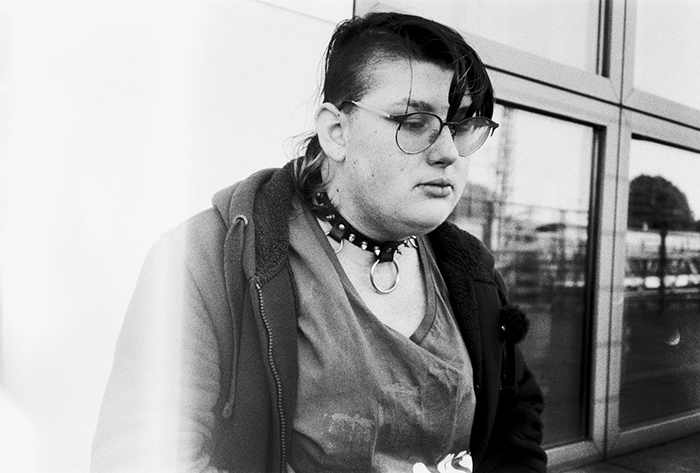 Noah‘s world is dominated by other things as he struggles with the circumstances of a life of heroin addiction. At »Haubi«, Hamburg‘s main railway station, Noah meets filmmaker Nizan Kasper. The two show each other this place where so many realities of life come together. With atmospheric density, stylistic joy of experimentation and an empathetic gaze, ›HAUBI‹ makes visible what the police is trying to suppress from the cityscape. Approaching the protagonist in a punk manner, the film combines analogue photographs, conversations and music. For all the inequality revealed in their relationship, ›HAUBI‹ impresses above all with its simple and respectful willingness to spend time together. (rg)
Noah‘s world is dominated by other things as he struggles with the circumstances of a life of heroin addiction. At »Haubi«, Hamburg‘s main railway station, Noah meets filmmaker Nizan Kasper. The two show each other this place where so many realities of life come together. With atmospheric density, stylistic joy of experimentation and an empathetic gaze, ›HAUBI‹ makes visible what the police is trying to suppress from the cityscape. Approaching the protagonist in a punk manner, the film combines analogue photographs, conversations and music. For all the inequality revealed in their relationship, ›HAUBI‹ impresses above all with its simple and respectful willingness to spend time together. (rg)
3001
Fri 26.4. | 3.45 pm
Guest: Martin Paret
Q&A: German
Operation Namibia
Martin Paret, DE 2023, 93 min, engl. OV with germ. Subtitles
In 1976, a group of white left-wing activists buy a sailing boat in England to sail to Namibia for several months.
mehr
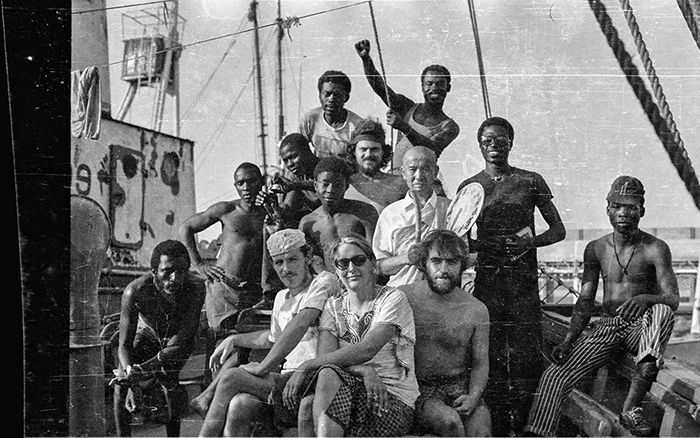 The young crew‘s mission: to initiate nothing less than a non-violent revolution in the apartheid system of the country occupied by South Africa. On board are 6,000 banned books, a lot of idealism and time. Based on the crew‘s correspondence with the organisation‘s offices in Philadelphia and London, the film skilfully and humorously recounts the progress and failure of the attempt at philanthropic activism, self-organisation and all its interpersonal limitations. ›Operation Namibia‹ is a polyphonic odyssey between letters, photos and Super8 film, from which the naive belief in international solidarity of the 1970s speaks. (af)
The young crew‘s mission: to initiate nothing less than a non-violent revolution in the apartheid system of the country occupied by South Africa. On board are 6,000 banned books, a lot of idealism and time. Based on the crew‘s correspondence with the organisation‘s offices in Philadelphia and London, the film skilfully and humorously recounts the progress and failure of the attempt at philanthropic activism, self-organisation and all its interpersonal limitations. ›Operation Namibia‹ is a polyphonic odyssey between letters, photos and Super8 film, from which the naive belief in international solidarity of the 1970s speaks. (af)
> Gesprächsveranstaltung: Dokumentierter Aktivismus & aktivistisches Filmen
Xaraasi Xanne – Crossing Voices
Raphaël Grisey, Bouba Touré, FR/DE/ML 2022, 123 min, soninké/french/bambara/pulaar OV with engl. Subtitles
The film is about struggles for work and recognition in France, the sans papiers movement, the Senegal River in Mali and what can be learned from termites.
mehr
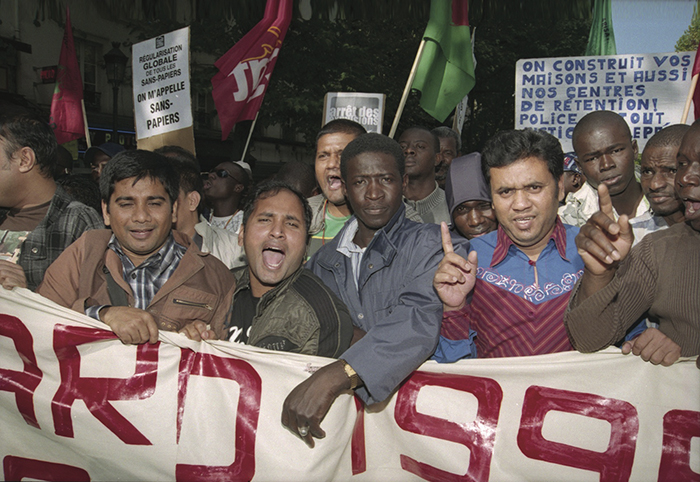 Different recording cultures come together. Documents of migrant resistance: videos, photos, posters and flyers, the griots and the radio, colonial images and Google Earth. As a traveler between Mali and France, Touré brought agricultural knowledge acquired in France back to Mali and, in 1977, founded the Somankidi Coura cooperative, which still exists today, with other returnees. Together, Touré and Grisey lay paths through Touré‘s rich archive and give them their own temporality: the permaculture of the fight against colonial dominance. (mg)
Different recording cultures come together. Documents of migrant resistance: videos, photos, posters and flyers, the griots and the radio, colonial images and Google Earth. As a traveler between Mali and France, Touré brought agricultural knowledge acquired in France back to Mali and, in 1977, founded the Somankidi Coura cooperative, which still exists today, with other returnees. Together, Touré and Grisey lay paths through Touré‘s rich archive and give them their own temporality: the permaculture of the fight against colonial dominance. (mg)
> Gesprächsveranstaltung: Dokumentierter Aktivismus & aktivistisches Filmen

Spuren von Bewegung vor dem Eis
René Frölke, DE 2024, 89 min, germ./engl./french OV with engl. Subtitles
The Super 8 camera purrs, old tape recordings are played. An apartment full of boxes stacked on top of each other, containing tons of books, magazines, correspondence and handwritten notes.
mehr
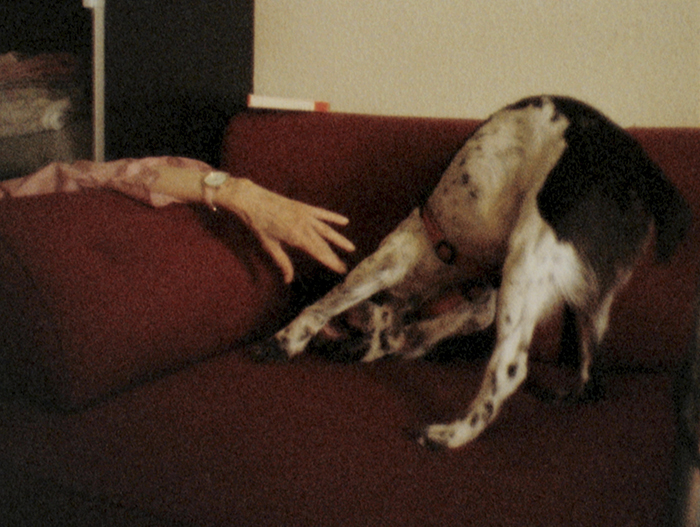 René Frölke elliptically traces what is left in the archive of the no longer existing Pendo publishing house. Things appear and disappear again, sentences break off. In between: the Catholicism of the publisher‘s founder and the jazz piano of his heiress. The film thus transforms itself into the material found and opens up a fragmentary and sensual search for traces using language, images, sound and text. The archive moves, the little things resonate: an old letter, the scribbled margins of a book, applause and a laugh from offstage. (ek)
René Frölke elliptically traces what is left in the archive of the no longer existing Pendo publishing house. Things appear and disappear again, sentences break off. In between: the Catholicism of the publisher‘s founder and the jazz piano of his heiress. The film thus transforms itself into the material found and opens up a fragmentary and sensual search for traces using language, images, sound and text. The archive moves, the little things resonate: an old letter, the scribbled margins of a book, applause and a laugh from offstage. (ek)
Position | Festivalzentrum fux eG
Sat 27.4. | 11 am
Guests: Onome Ekeh,
Abdou-Rahime Diallo
Discussion in English
Position: Dokumentierter Aktivismus & aktivistisches Filmen
Dokumentierter Aktivismus & aktivistisches Filmen: Respondenzen von Onome Ekeh und Abdou-Rahime Diallo
Discussion event in English
mehr
The discussion will be based on the films: ›Xaraasi Xanne – Crossing Voices‹, ›Operation Namibia‹ and ›Fasia – von trutzigen Frauen und einer Troubadora‹ which tell of emancipatory struggles from the 1960s to the 2000s between self-organization, supporterism and activism. Despite the diversity of political milieus, temporalities and narrative styles, the spirit of 20th century internationalism speaks from the films, the assertion that all people can participate equally in the struggle against capitalism and exploitation. The discussion will focus on critical perspectives on self-empowered archive work and the image productions of subaltern positions. What were the promises of the internationalism of the time, how did it fall into disrepute and how can a transformation succeed? (aa/teg/mg)
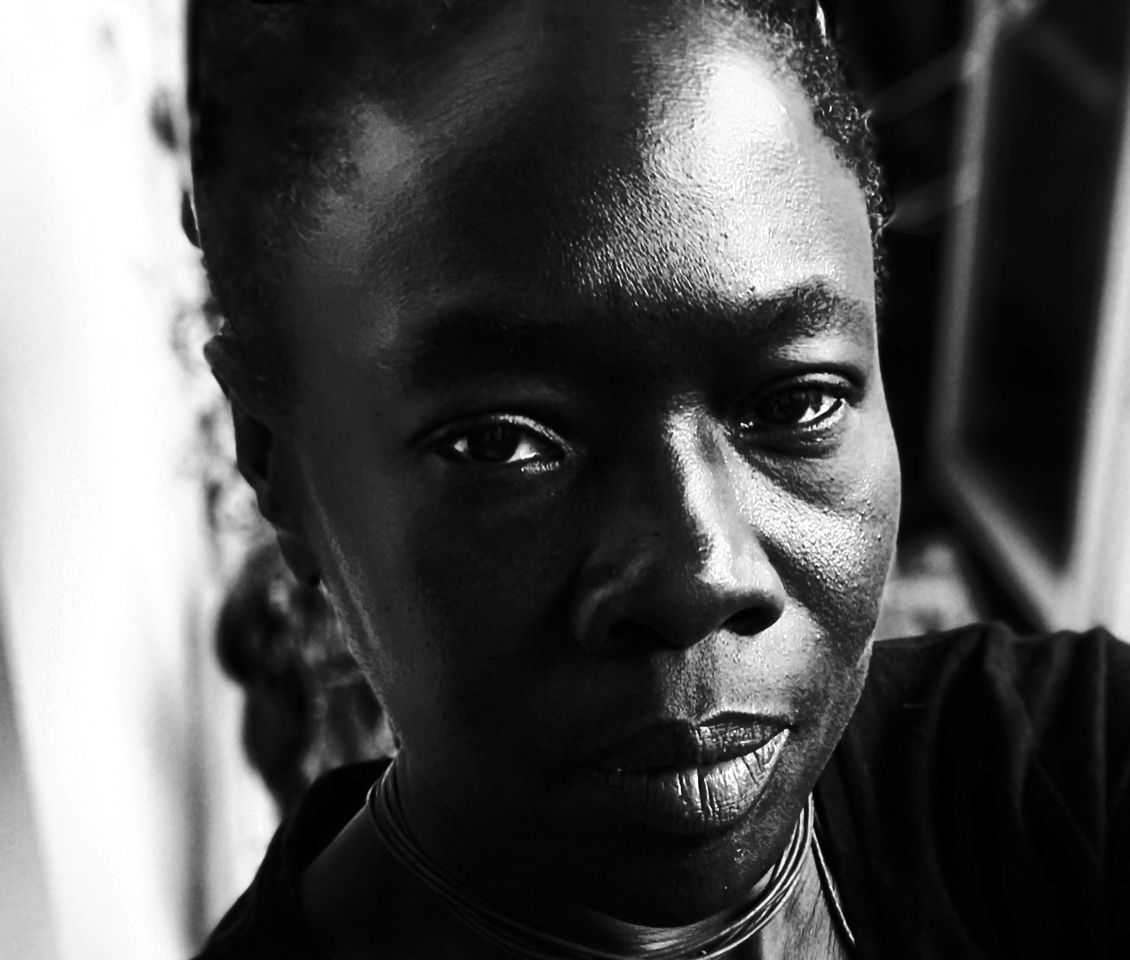 Born on both sides of the Atlantic, Onome Ekeh is a writer and designer of speculative spaces based in Basel. Her work revolves around cultural condensations such as the Black diaspora, postcolonial intersections, and the possibilities of reshaping dominant cultural constructs.
Born on both sides of the Atlantic, Onome Ekeh is a writer and designer of speculative spaces based in Basel. Her work revolves around cultural condensations such as the Black diaspora, postcolonial intersections, and the possibilities of reshaping dominant cultural constructs.
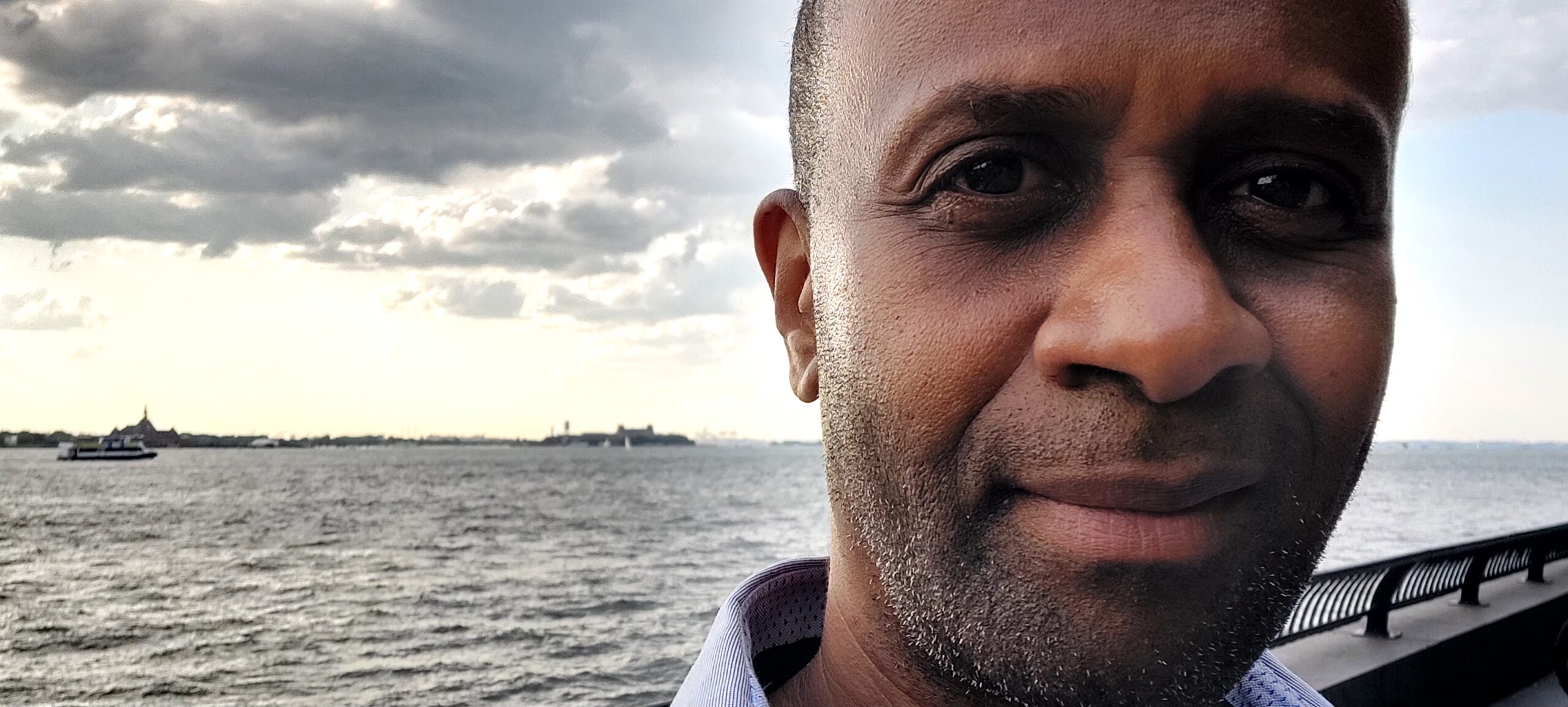 Abdou-Rahime Diallo is a political consultant and trainer in the field of decolonisation and anti-racism, intercultural moderator, musician and filmmaker. His parents came from Guinea to study in the GDR. He was born in Halle and lives in Berlin. One focus of his work is networking and advising diasporic migrant organisations.
Abdou-Rahime Diallo is a political consultant and trainer in the field of decolonisation and anti-racism, intercultural moderator, musician and filmmaker. His parents came from Guinea to study in the GDR. He was born in Halle and lives in Berlin. One focus of his work is networking and advising diasporic migrant organisations.
Metropolis
Sat 27.4. | 2 pm
Guests: Re Karen,
Gernot Steinweg,
Rainer Komers
Q&A: German
> TRAILER
In cooperation with:

Fasia – von trutzigen Frauen und einer Troubadora
Re Karen, BRD 1987, 84 min, germ. OV Premiere of the digitized 4K version
Fasia Jansen was born in 1929 as the illegitimate daughter of Elli Jansen from Hamburg-Rothenburgsort and the Liberian consul general Momulu Massaquoi and grew up in her mother‘s family.
mehr
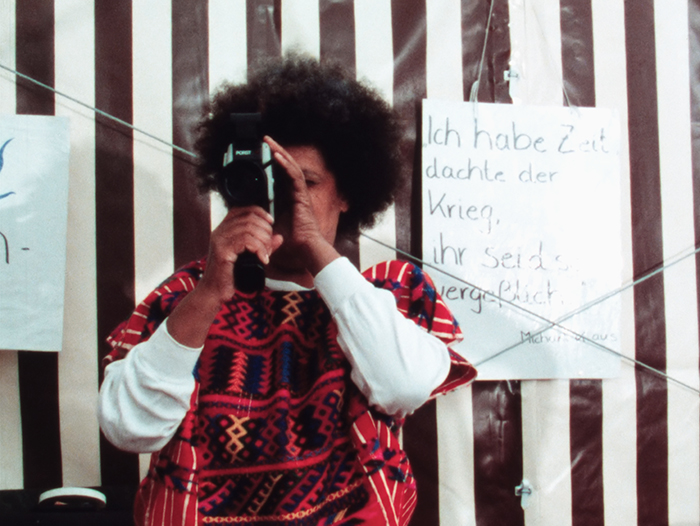 During the Nazi era, as an Afro-German she had no access to the air raid shelters and was subjected to medical experiments by the Nazis, which had a lasting effect on her health. Later, the Ruhr area became her adopted home and she became involved in the anti-war movement. Her blues voice and stage presence made her an icon of the European feminist peace movement in the 1980s. The film is a tribute to Fasia Jansen and features impressive interview scenes with her mother and childhood friends from Hamburg. (mg)
During the Nazi era, as an Afro-German she had no access to the air raid shelters and was subjected to medical experiments by the Nazis, which had a lasting effect on her health. Later, the Ruhr area became her adopted home and she became involved in the anti-war movement. Her blues voice and stage presence made her an icon of the European feminist peace movement in the 1980s. The film is a tribute to Fasia Jansen and features impressive interview scenes with her mother and childhood friends from Hamburg. (mg)
> Gesprächsveranstaltung: Dokumentierter Aktivismus & aktivistisches Filmen
Position | Festivalzentum fux eG
Sat 27.4. | 4 pm
Guests: Gerd Haag,
Michael Girke
Lecture in German
Position: Documentary listening
Wildenhahn unerhört
Reading in German language
mehr
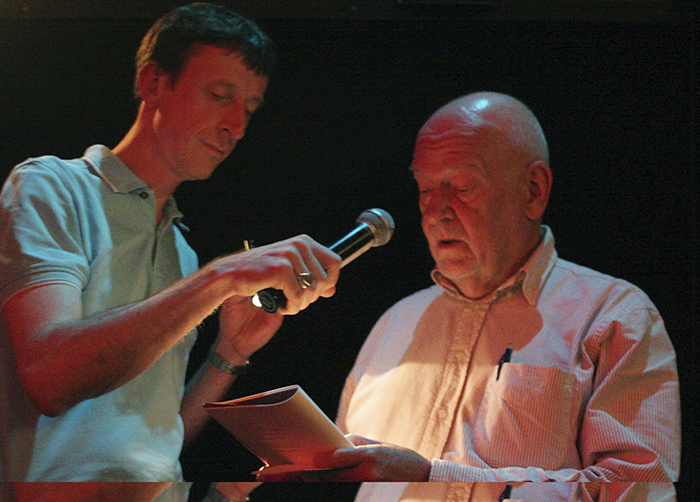 »Wildenhahn‘s films have captured, saved, made the changes visible. This is the moment when we realise how much our memory needs documentary film.« Gerd Haag and Michael Girke experienced the documentary filmmaker Klaus Wildenhahn from very different perspectives – and are now presenting them together. The author, editor and producer Gerd Haag, who realised the audio play ›Da wo die Kamine qualmen, da musst Du später hin‹ with Klaus Wildenhahn, reads from his production diary at the time. Michael Girke – author and singer-songwriter – will present his unpublished book ›Versuch über Heimat‹, which contains a long chapter on Klaus Wildenhahn‘s documentary films. Their reading will be recorded as an audio piece. (rg)
»Wildenhahn‘s films have captured, saved, made the changes visible. This is the moment when we realise how much our memory needs documentary film.« Gerd Haag and Michael Girke experienced the documentary filmmaker Klaus Wildenhahn from very different perspectives – and are now presenting them together. The author, editor and producer Gerd Haag, who realised the audio play ›Da wo die Kamine qualmen, da musst Du später hin‹ with Klaus Wildenhahn, reads from his production diary at the time. Michael Girke – author and singer-songwriter – will present his unpublished book ›Versuch über Heimat‹, which contains a long chapter on Klaus Wildenhahn‘s documentary films. Their reading will be recorded as an audio piece. (rg)
> Exhibition: Documentary listening
No Other Land
Basel Adra, Hamdan Ballal, Yuval Abraham, Rachel Szor, PS/NO 2024, 95 min, arab./hebr./engl. OV with engl. Subtitles
The villages of Masafer Yatta in the West Bank are to make way for a military training area; Israel‘s highest court has approved the expropriation.
mehr
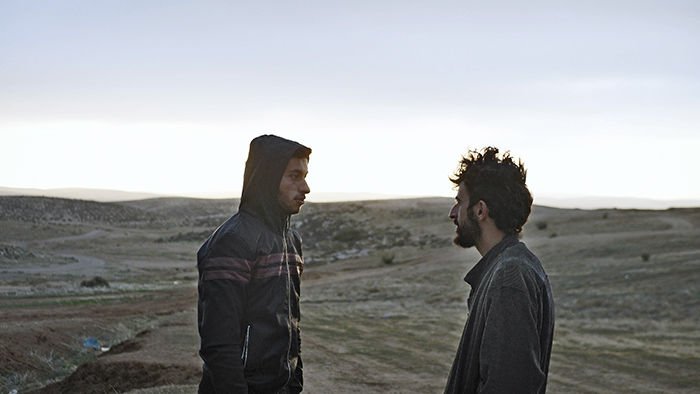 The family of Basel Adra has been resisting this for a long time. We see Adra as a child, as a young man; first he is filmed, then he begins to film himself: documenting the destruction of the houses, the repression and the tenacity with which the residents defend their home. Yuval Abraham, an Israeli journalist, partakes and takes sides: a commuter between the territories. A deep dive into a brutal reality, but also a look at the struggle for understanding, for coming together and an attempt to comprehend. (fb/tg)
The family of Basel Adra has been resisting this for a long time. We see Adra as a child, as a young man; first he is filmed, then he begins to film himself: documenting the destruction of the houses, the repression and the tenacity with which the residents defend their home. Yuval Abraham, an Israeli journalist, partakes and takes sides: a commuter between the territories. A deep dive into a brutal reality, but also a look at the struggle for understanding, for coming together and an attempt to comprehend. (fb/tg)
Position: Documentary listening
Da wo die Kamine qualmen, da musst Du später hin
Feature (audio play) in German
Klaus Wildenhahn, Gerd Haag, BRD 1978, 86 min, germ. OV
»When a child is born in Larsburg or in the Wittgensteiner Land, it immediately has its head turned and is told:
mehr
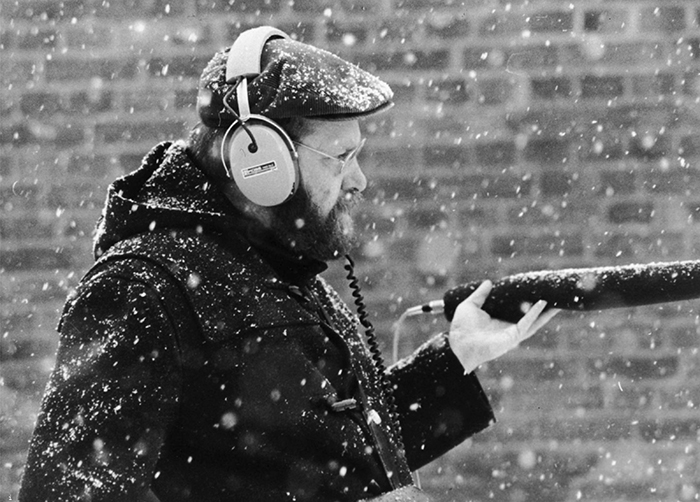 there where the chimneys are smoking, there you will have to go later,« begins the audio film by Klaus Wildenhahn and Gerd Haag. It turns out that 2,500 years of ore mining have left their mark on people and the landscape. »Iron glowing red, a shower of sparks. The shadow of a worker in far-reaching movement.« Captured on tape by Klaus Wildenhahn, when he was unemployed, and Gerd Haag – at the time at WDR. The audio film was advertised with the slogan »Entertainment, narration, stories, history.« Without a camera, only with a microphone, the two managed to create a documentary for the ears and a complex inventory of working conditions in the Siegerland. (rg)
there where the chimneys are smoking, there you will have to go later,« begins the audio film by Klaus Wildenhahn and Gerd Haag. It turns out that 2,500 years of ore mining have left their mark on people and the landscape. »Iron glowing red, a shower of sparks. The shadow of a worker in far-reaching movement.« Captured on tape by Klaus Wildenhahn, when he was unemployed, and Gerd Haag – at the time at WDR. The audio film was advertised with the slogan »Entertainment, narration, stories, history.« Without a camera, only with a microphone, the two managed to create a documentary for the ears and a complex inventory of working conditions in the Siegerland. (rg)
> Exhibition: Documentary Listening
Notre corps – Our Body
Claire Simon, FR 2023, 168 min, french./engl./span. OV with engl. Subtitles
Abortion, gender reassignment, artificial insemination, births and incurable diseases.
mehr
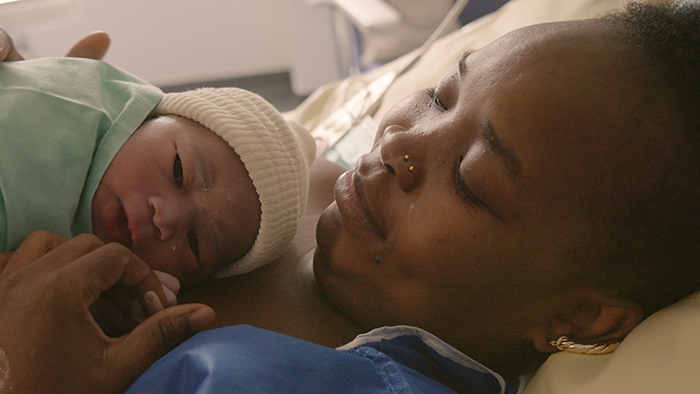 A 360-degree view of bodies in the gynaecology department of the Tenon hospital in Paris. ›Notre corps‹ is a magnificent, powerful film and an imprint of the bodies shown, which are shaped by a centuries-old culture of shame and repression. With patience, time and sensitivity, Claire Simon gets close to the people and shares their pain and joy. Then the director herself steps in front of the camera and becomes a patient. The same sincere and humble gaze that she previously directed at others is now directed at herself. A twist that reinforces the idea of equal treatment across classes and backgrounds and creates the notion of a collective self: »unser Körper«. (fb)
A 360-degree view of bodies in the gynaecology department of the Tenon hospital in Paris. ›Notre corps‹ is a magnificent, powerful film and an imprint of the bodies shown, which are shaped by a centuries-old culture of shame and repression. With patience, time and sensitivity, Claire Simon gets close to the people and shares their pain and joy. Then the director herself steps in front of the camera and becomes a patient. The same sincere and humble gaze that she previously directed at others is now directed at herself. A twist that reinforces the idea of equal treatment across classes and backgrounds and creates the notion of a collective self: »unser Körper«. (fb)
Knit’s Island
Ekiem Barbier, Guilhem Causse, Quentin L’helgoualc’h, FR 2023, 95 min, engl./french OV with engl. Subtitles
In the virtual world of survival game »DayZ«, players meet to immerse themselves in a post-apocalyptic setting.
mehr
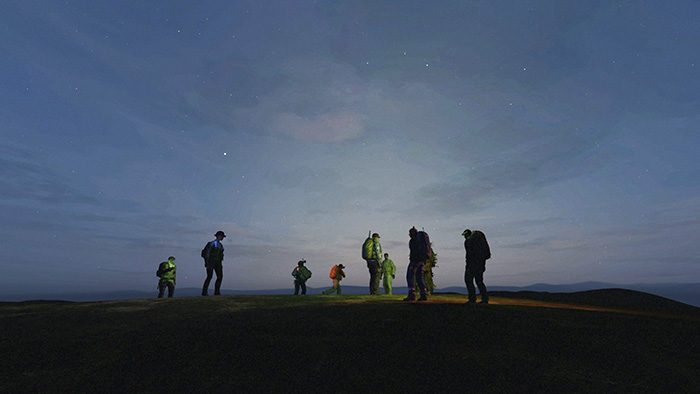 Among them are the filmmakers of ›Knit’s Island‹. In this film, which could almost be described as an adventure movie, the virtual world reveals itself as a field of social experimentation: why do some become cannibals while others pay homage to a wolf god and join forces to garden in solidarity? So-called »real life« only fleetingly breaks into the maelstrom of the high-resolution simulation when a player‘s child cries in the next room. ›Knit’s Island‹ documents fiction-based identities and, contrary to the deadly principle of the game, searches for communities that want to gather around virtual campfires and explore the edges of the Internet. (ab/ek)
Among them are the filmmakers of ›Knit’s Island‹. In this film, which could almost be described as an adventure movie, the virtual world reveals itself as a field of social experimentation: why do some become cannibals while others pay homage to a wolf god and join forces to garden in solidarity? So-called »real life« only fleetingly breaks into the maelstrom of the high-resolution simulation when a player‘s child cries in the next room. ›Knit’s Island‹ documents fiction-based identities and, contrary to the deadly principle of the game, searches for communities that want to gather around virtual campfires and explore the edges of the Internet. (ab/ek)
Position | Metropolis
Sun 28.4. | 11 am
Introduction: Claudia Honefeld
Guests: Rainer Ackermann,
Christian Lehmann-Feddersen
Q&A: German
Position: Spanish Civil War
Die Cousins
Rainer Ackermann, Thomas Plenert, Christian Lehmann, BRD 1988, 90 min, germ. OV
Three young people from Hamburg, the brothers Viktor and Bruno Prieß and their cousin Heinz, arrive in Spain at the turn of the year 1936/37 to fight in the civil war against the Franco putschists.
mehr
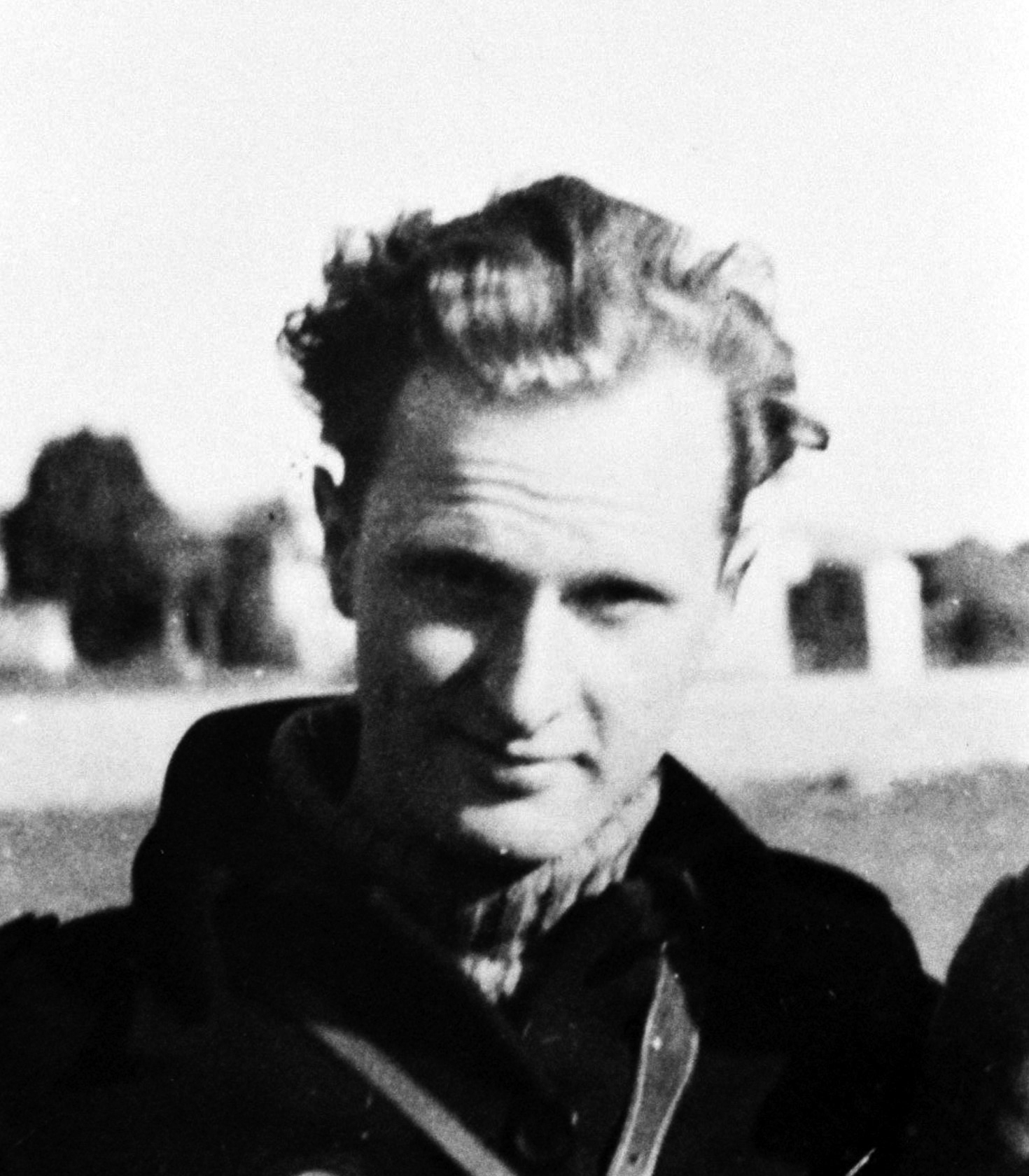 Bruno falls in the Battle of the Ebro. After Franco‘s victory, cousins Viktor and Heinz parted ways, one living in the Federal Republic of Germany and the other in the GDR. Around 50 years later, the filmmakers Ackermann, Plenert and Lehmann initiate a reunion and a trip together for the cousins to Spain, back to the places where the war took place. The story of how the film came about is also special: a West German production company and the DEFA documentary film studio in East Berlin realise the first ever German-German co-production. (fg)
Bruno falls in the Battle of the Ebro. After Franco‘s victory, cousins Viktor and Heinz parted ways, one living in the Federal Republic of Germany and the other in the GDR. Around 50 years later, the filmmakers Ackermann, Plenert and Lehmann initiate a reunion and a trip together for the cousins to Spain, back to the places where the war took place. The story of how the film came about is also special: a West German production company and the DEFA documentary film studio in East Berlin realise the first ever German-German co-production. (fg)
Position | Metropolis
Sun 28.4. | 1 pm
Guest: Karl Siebig
Q&A: German
Position: Spanish Civil War
Unversöhnliche Erinnerungen
Klaus Volkenborn, Johann Feindt, Karl Siebig, BRD 1979, 92 min, germ. OV
Two West German biographies that could not be more different:
mehr
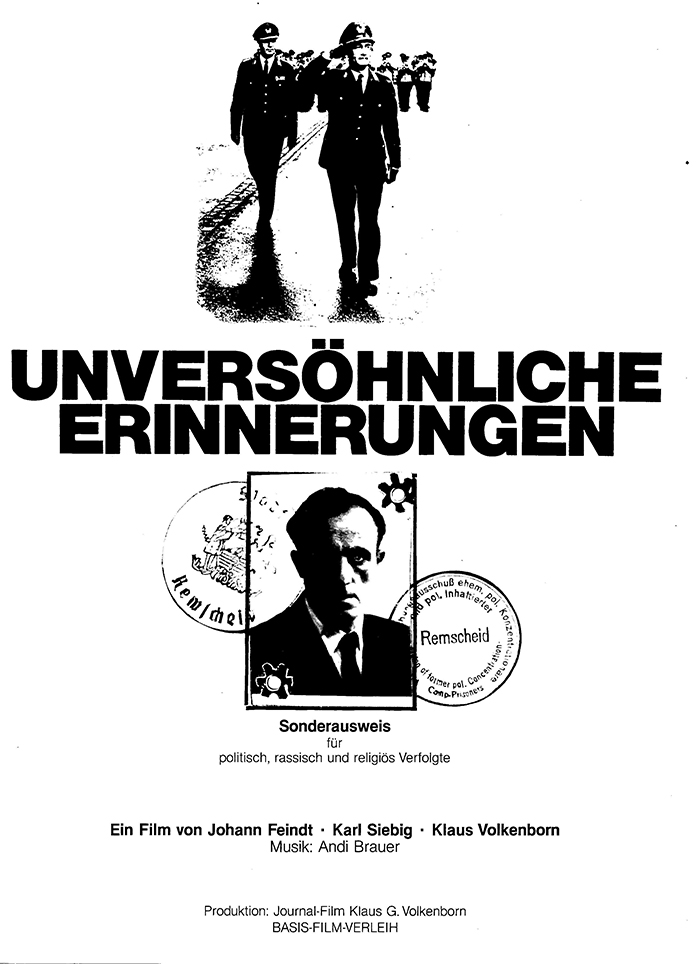 Henning Strümpell, a retired Bundeswehr general, was a fighter pilot in the Condor Legion and part of the fascist support for General Franco in the Spanish Civil War. Ludwig Stillger, on the other hand, a trained bricklayer and a communist and unionized worker in the 1920s, fought on the side of the International Brigades. From a critical point of view, the open-hearted depictions of the Prussian nationalist Strümpell are a highly revealing panopticon of reactionary ideology and historical distortion, brilliantly exposed on film by the constant juxtaposition with the unpretentious and thoroughly sympathetic portrayal of Stillger‘s eventful life and his constant commitment to a world of solidarity and peace. (fg)
Henning Strümpell, a retired Bundeswehr general, was a fighter pilot in the Condor Legion and part of the fascist support for General Franco in the Spanish Civil War. Ludwig Stillger, on the other hand, a trained bricklayer and a communist and unionized worker in the 1920s, fought on the side of the International Brigades. From a critical point of view, the open-hearted depictions of the Prussian nationalist Strümpell are a highly revealing panopticon of reactionary ideology and historical distortion, brilliantly exposed on film by the constant juxtaposition with the unpretentious and thoroughly sympathetic portrayal of Stillger‘s eventful life and his constant commitment to a world of solidarity and peace. (fg)
Position | Metropolis
Sun 28.4. | 3 pm
Panel discussion with all guests
of the films shown in advance
Discussion in German
Position: Spanish Civil War
Humanity becomes wiser by learning from its history! Perhaps!
Panel discussion in German
mehr
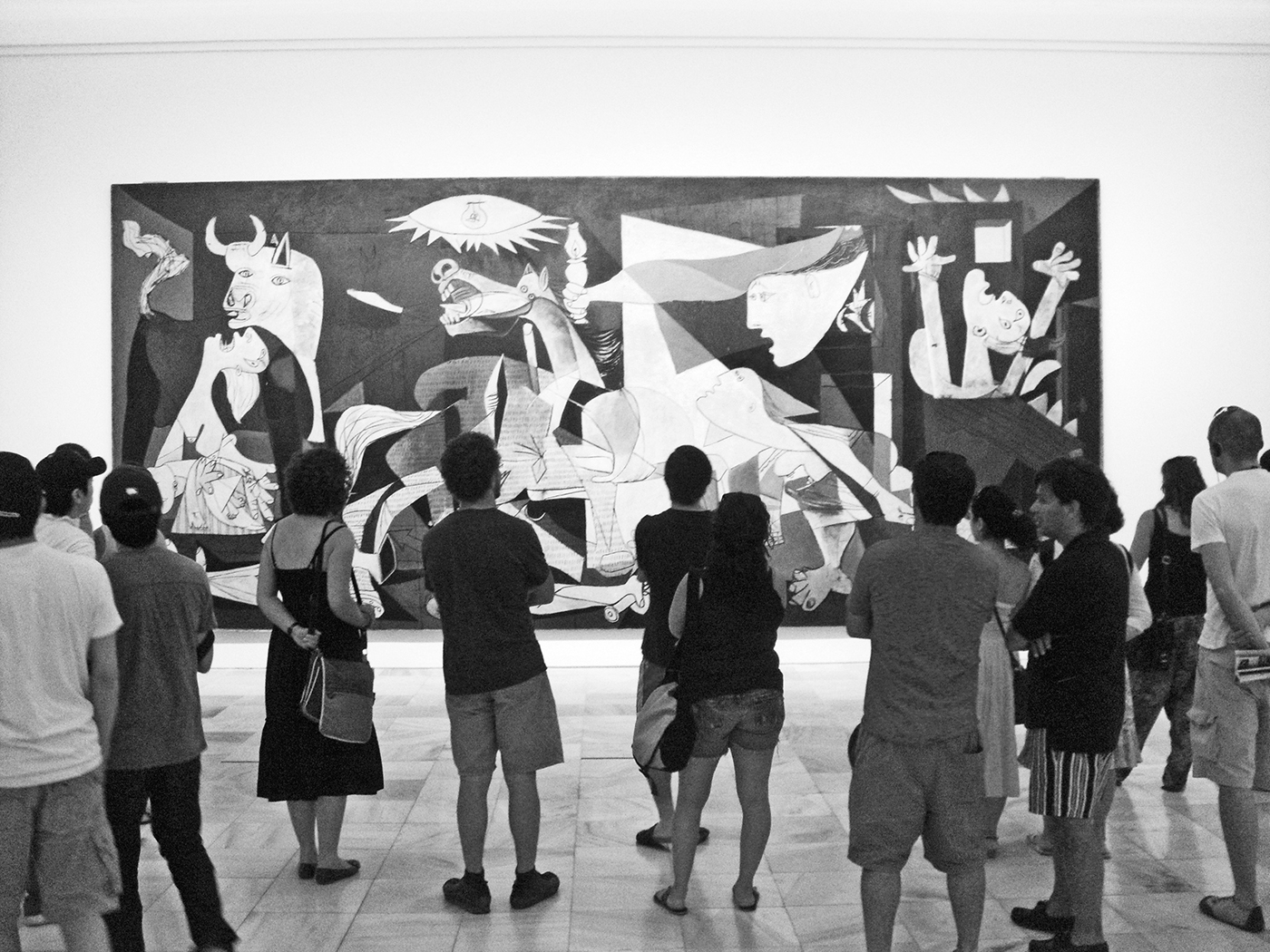 An attentive look at history illuminates the present. For this reason, we are showing two films from the Hamburg Cinematheque on the Spanish Civil War. We are on the eve of the European elections and two landmark state elections in East Germany, and a victory for the fascist Höcke is anything but out of the question. Between July 1936 and April 1939, a civil war raged in Spain between the government of the Second Republic and the supporters of the fascist General Franco. Many Germans also fought on both sides. Together with the representatives of the films shown and the historian Claudia Honefeld, we will talk about the significance of the civil war, which goes far beyond Spain and is still symbolic of the fight against European fascism today. What about the politics of remembrance in Spain and Germany today and what conclusions can be drawn for the present? (fg)
An attentive look at history illuminates the present. For this reason, we are showing two films from the Hamburg Cinematheque on the Spanish Civil War. We are on the eve of the European elections and two landmark state elections in East Germany, and a victory for the fascist Höcke is anything but out of the question. Between July 1936 and April 1939, a civil war raged in Spain between the government of the Second Republic and the supporters of the fascist General Franco. Many Germans also fought on both sides. Together with the representatives of the films shown and the historian Claudia Honefeld, we will talk about the significance of the civil war, which goes far beyond Spain and is still symbolic of the fight against European fascism today. What about the politics of remembrance in Spain and Germany today and what conclusions can be drawn for the present? (fg)
Was hast du gestern geträumt, Parajanov?
Faraz Fesharaki, DE 2024, 82 min, farsi/germ. OV with engl. Subtitles
Berlin-based filmmaker Faraz Fesharaki keeps in touch with his parents in Isfahan and his cousin in Austria via his webcam.
mehr
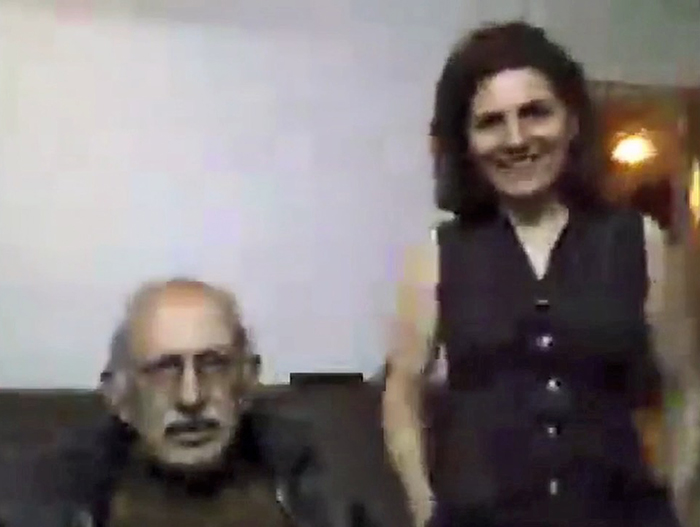 Originally intended as a video diary, he compiles these conversations from a period of over ten years with old VHS videos, current film footage and written panels to create a subtle family portrait. In intimate conversations about everyday life, feelings, relationships and the past, the longing for connection and intergenerational dialog is expressed. Behind the superficial banality of family life, something essential always shimmers through: Private actions and words always have political implications in Iran. A very unique, poetic film full of humor as well as pain, of past and present dreams and hopes.(tg/mr)
Originally intended as a video diary, he compiles these conversations from a period of over ten years with old VHS videos, current film footage and written panels to create a subtle family portrait. In intimate conversations about everyday life, feelings, relationships and the past, the longing for connection and intergenerational dialog is expressed. Behind the superficial banality of family life, something essential always shimmers through: Private actions and words always have political implications in Iran. A very unique, poetic film full of humor as well as pain, of past and present dreams and hopes.(tg/mr)
Metropolis
Sun 28.4. | 7 pm
Guests: André Siegers,
Simon Quack
Q&A: German

La Empresa
André Siegers, DE 2023, 94 min, span./engl./dt. OmeU
»The Germans« want to shoot a film and end up going astray. Instead of Las Vegas, they find themselves in the Mexican village of El Alberto.
mehr
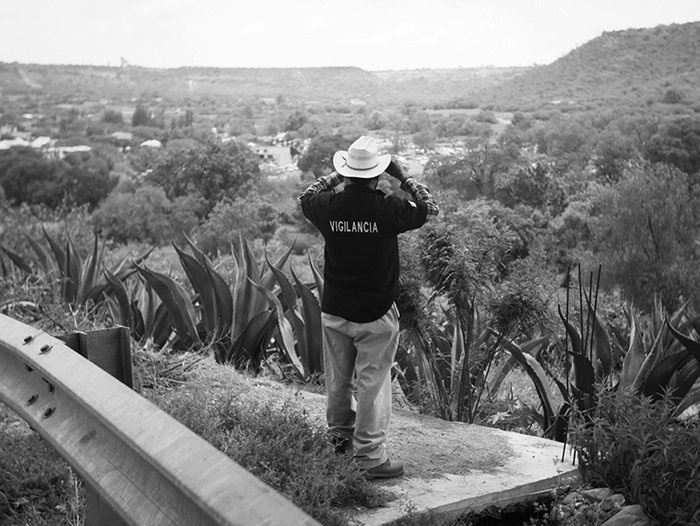 There, the holiday camp run by residents offers not only a leisure pool but also adventure tours: in the »Caminata Nocturna«, members of the indigenous community re-enact illegal border crossings into the USA, based on their own experiences. It‘s all real: smugglers, bandits, border officials and rough terrain. International film crews and tourists queue up. The German documentary filmmakers keep their distance and, with the permission of the village authorities, film the activities of an ecosystem that offers the young people there the prospect of a different dream than the American one. (mg)
There, the holiday camp run by residents offers not only a leisure pool but also adventure tours: in the »Caminata Nocturna«, members of the indigenous community re-enact illegal border crossings into the USA, based on their own experiences. It‘s all real: smugglers, bandits, border officials and rough terrain. International film crews and tourists queue up. The German documentary filmmakers keep their distance and, with the permission of the village authorities, film the activities of an ecosystem that offers the young people there the prospect of a different dream than the American one. (mg)
Coconut Head Generation
Alain Kassanda, FR/NG 2023, 89 min, engl./pidgin/yoruba/french OV with engl. Subtitles
Campus life caught between a spirit of optimism and stagnation, lack of prospects for young people in a society which finds itself in a state of deadlock.
mehr
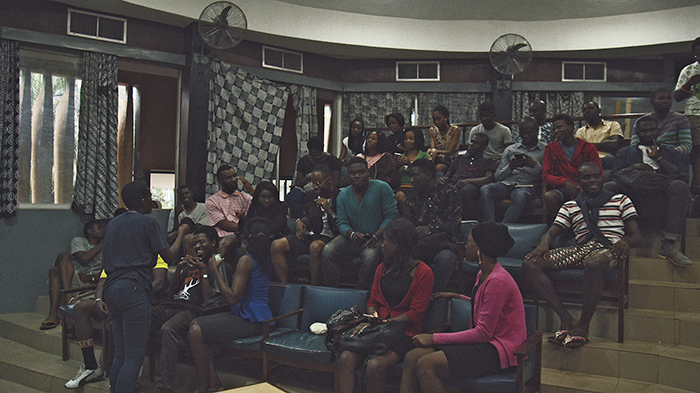 The University of Ibadan is the oldest in Nigeria, founded in 1948 on the British model. Today, students sit under the sparse light of street lamps after dark to study. The halls of residence are overcrowded and many camp out in the corridors. Every Thursday, however, some students turn on the power generator and invite people to the film club: This is where the »Coconut Heads« turn the tables and address the barriers in their own minds and those of the system in which they are growing up. Alain Kassanda‘s film brings the debate culture itself, with all its depths, to the fore as the main protagonist. (mg)
The University of Ibadan is the oldest in Nigeria, founded in 1948 on the British model. Today, students sit under the sparse light of street lamps after dark to study. The halls of residence are overcrowded and many camp out in the corridors. Every Thursday, however, some students turn on the power generator and invite people to the film club: This is where the »Coconut Heads« turn the tables and address the barriers in their own minds and those of the system in which they are growing up. Alain Kassanda‘s film brings the debate culture itself, with all its depths, to the fore as the main protagonist. (mg)
